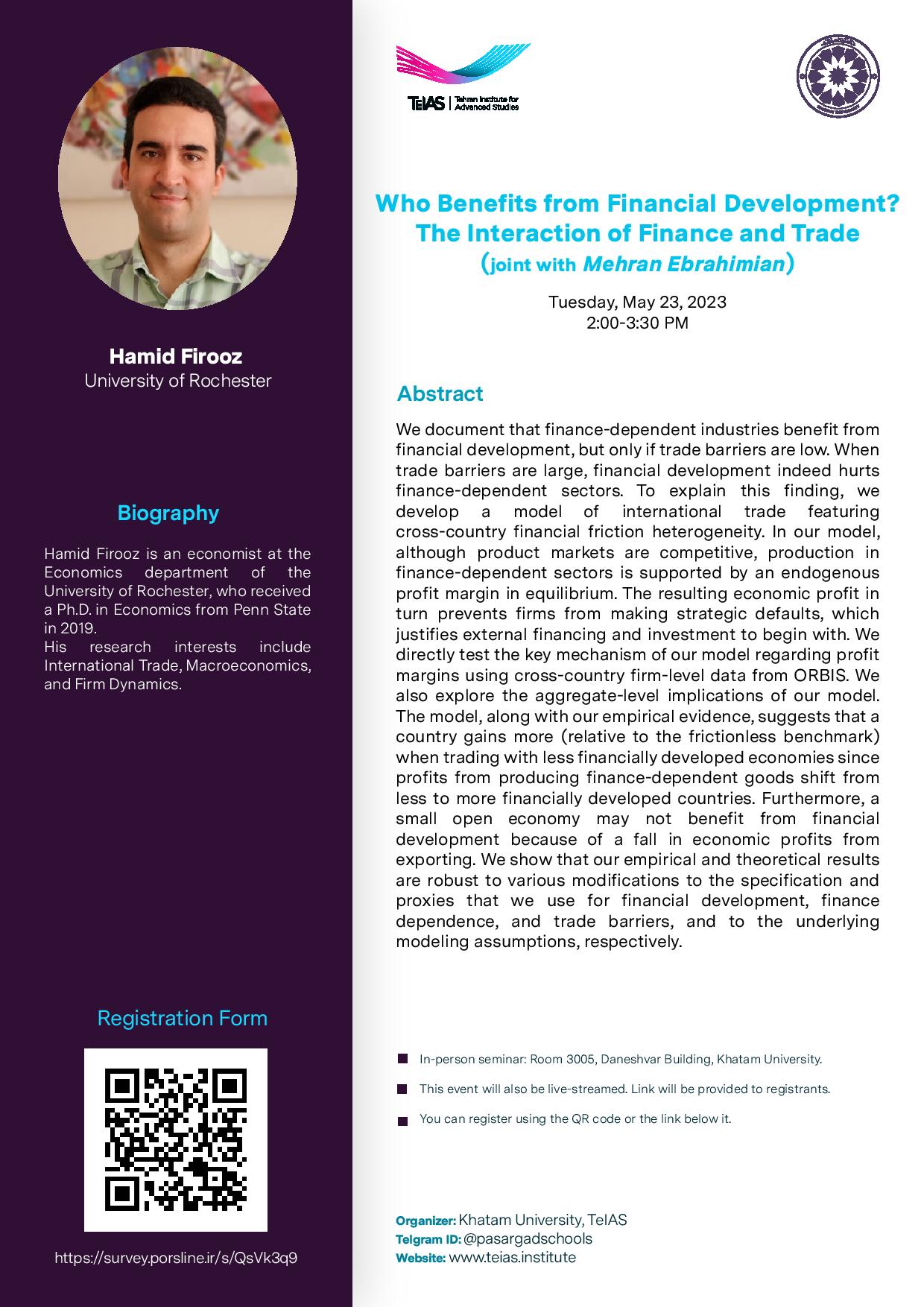
In-person seminar: Room 3005, Daneshvar Building, .
This event will also be live-streamed. Link will be provided to registrants.
May 22, 2023
Hamid Firooz
University of Rochester
Overview
We document that finance-dependent industries benefit from financial development, but only if trade barriers are low. When trade barriers are large, financial development indeed hurts finance-dependent sectors. To explain this finding, we develop a model of international trade featuring cross-country financial friction heterogeneity. In our model, although product markets are competitive, production in finance-dependent sectors is supported by an endogenous profit margin in equilibrium. The resulting economic profit in turn prevents firms from making strategic defaults, which justifies external financing and investment to begin with. We directly test the key mechanism of our model regarding profit margins using cross-country firm-level data from ORBIS. We also explore the aggregate-level implications of our model. The model, along with our empirical evidence, suggests that a country gains more (relative to the frictionless benchmark) when trading with less financially developed economies since profits from producing finance-dependent goods shift from less to more financially developed countries. Furthermore, a small open economy may not benefit from financial development because of a fall in economic profits from exporting. We show that our empirical and theoretical results are robust to various modifications to the specification and proxies that we use for financial development, finance dependence, and trade barriers, and to the underlying modeling assumptions, respectively.
Biography

Hamid Firooz is an economist at the Economics department of the University of Rochester, and received a Ph.D. in Economics from Penn State in 2019. His research interests include International Trade, Macroeconomics, and Firm Dynamics.
